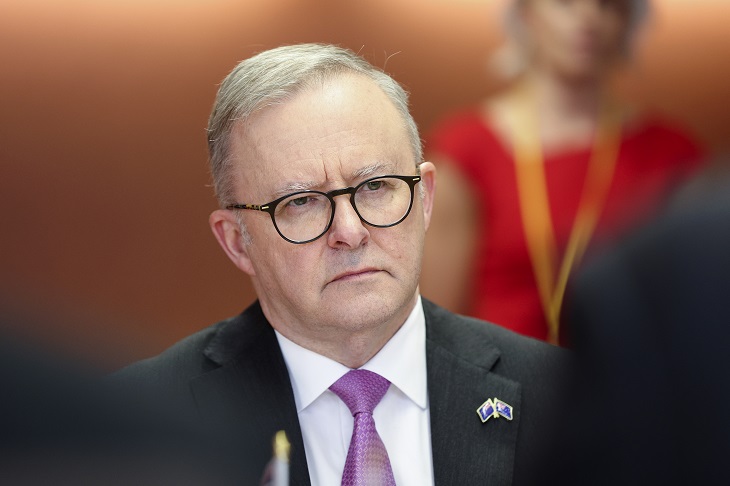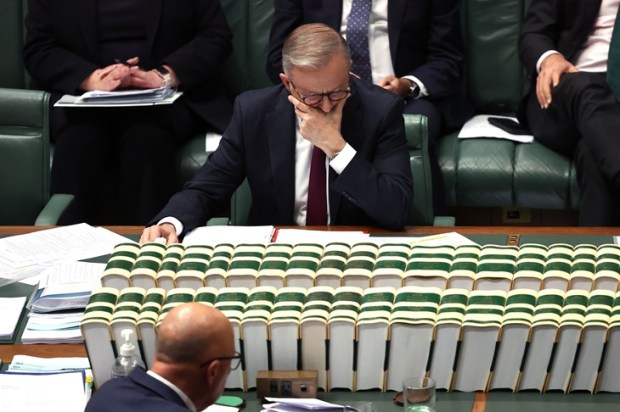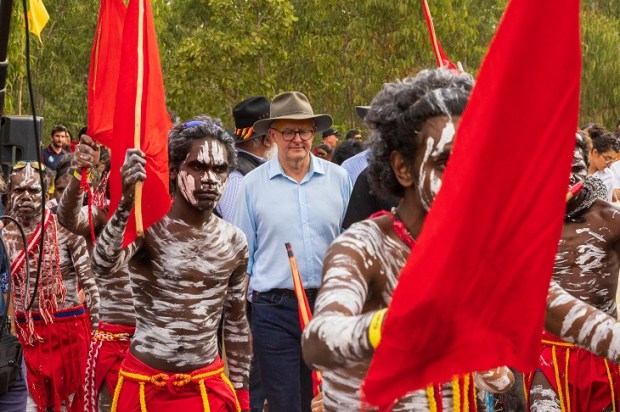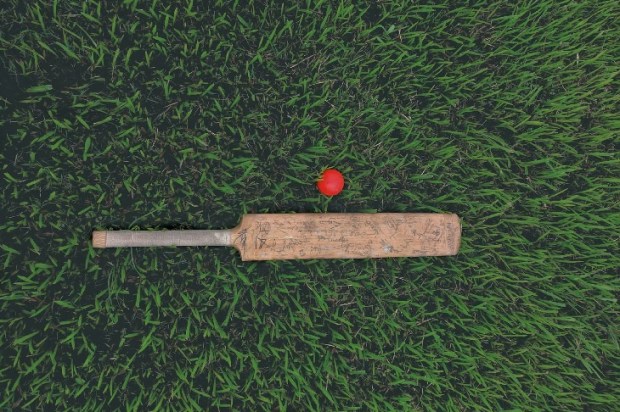It was W.B. Yeats, after the first world war, who wrote his poem that contained the phrase, ‘The centre cannot hold…’
He saw the grief of body, soul, and mind around him and lamented at the spirit of his age. We do not have a physical war on our shores at this stage, but is the spirit of our age moving towards being similarly de-centred?
I thought so, after recently watching Matt Cunningham’s documentary about the Voice on Sky News Australia.
Admittedly, there was beauty in what was given to us – the scenery was spectacular. Also, Cunningham interviewed his guests with a refreshing and calm temperament. However, it was the pathos that came from some of the interviewees that really grabbed me and pointed to the spirit of our times, as amplified by this proposed Voice to Parliament.
Who could not be moved by Jacinta Nampijinpa Price describing how she was stopped from going to her grandmother and talking to her about her experiences within a remote and marginalised Aboriginal community? As she noted, it made no difference that this was her home country, nor that she is a sitting Senator in the Australian Federal Parliament. You could see, and – if soft of heart – feel her tears.
Then there were the sobering examples given by Warren Mundine about the impact of personal attacks on him because of his ‘No’ stance on the proposed Voice. Despite despicable scepticism from social media regarding Mundine’s sharing of his suicidal thoughts, including at least one journalist, the look on Cunningham’s face as he heard this story of struggle, represented the response of any sympathetic person.
Dean Parkin and his mother were interesting as well, but in a different way. Their explanation of the integral relationship with the land sounded sincere and believable for them. But as I watched Dean walk along a scenic beach in ‘his backyard’, I also thought of how refreshing it would be for any of us to do the same, for both our bodies and souls.
There was more than a straightforward, holistic refreshment for this family. As Dean’s mother said, this was being in touch with ‘Mother Nature’. It is not only a deep appreciation and awe of something wondrous for them – it forms a moment of worship because Mother Nature is a deity.
This is an example of the spirituality that is inherent in Australian Indigenous culture, similar to the smoking ceremonies in which we are asked to engage, or observe and approve, even as ‘non-believers’.
What is fascinating to me are the atheists who support this religious thinking and practise while at the same time making life increasingly hard for those who are still committed to our Judeo-Christian heritage in a personal way. It is a sentiment that should not surprise us. We are increasingly becoming like our Greco-Roman heritage, which had a cacophony of spiritualities. It was a society with a diverse sacred heart, but the heart was immanent. The control of life was remained centred on the ground while the deepest allegiances were to the non-physical.
The ‘centre’ that held Roman society together was the force of their organisation, while accepting all the deities from the smorgasbord of religions in which they found themselves.
I see similarities with our Prime Minister and his leaders. When with Indigenous people, he will delight in their spiritual rituals. When wanting to evoke sympathy from Catholics and others in the Christian faith, he passionately reflects on his childhood and his mother’s belief (while not personally adhering to the Faith’s doctrine). When he is with environmentalists, the Prime Minister will speak with passion about protecting the Earth as the ultimate good on which the rest of us must sacrifice an increasing percentage of our offerings (called taxes).
However, as Steven D Smith notes in Pagans and Christians in the City, this kind of duplicitous spiritual tolerance cannot be maintained when one group is insistent on an equality that results in the casteism of the day being threatened. This threat was founded on a spirituality that applied equally to all, that helped develop a shelter of law that applied equally to all, and also gave an umbrella of care that applied to all who joined. This was possible because the spirituality was not immanent, but transcendent. As Smith describes it:
‘…“religious” and “worldly” were in the ancient world nicely integrated and mutually reinforcing … the Romans thus devoted massive resources to honouring the gods and retaining their favour; it was in this sense that the Romans deemed themselves religiously superior to all other nations.’
And that is increasingly like today in Australia. We spend millions on the pantheism of environmentalism. We dip and bow to the god of self-definition as in gender identity, which invites young people to self-harm. We propose a split in our civic life based on an ancient culture, just because it is ancient. We allow our history to be rewritten to a different script and invite religious anger onto any who resists. All of this is held together by the most official religion of all – pseudo-science.
Smith notes that when the Christians came along, building on the work of the Jews, they brought an external frame of reference because of their transcendent focus that complemented problem-solving within their world. The operating systems of their minds allowed them to believe there were certain natural goods for all people because there was an original good source (God). Eventually, this meant that the equality they had as a community flowed out, imperfectly, into conceptions of how broader society might work.
This influence described by Smith is what we now call our ‘Western heritage’. But this heritage is not something innate to any culture per se – it is what arises from contact with the Judeo-Christian heritage and as it has been developed over time (see Tom Holland’s Dominion: The creation of the Western mind).
And this is ‘that which will not be spoken’ with reference to the proposed Voice. It is not that the spirituality is not hidden, but it is verboten. For example, it is clear that the way the members of the proposed Voice will be appointed is not under the ‘rule of democratic processes’. They will achieve their membership by the ways determined by the local mob – which traditionally is not through representational elections. Even by the time a person makes it to the Voice, the community have enacted regressive civic processes.
But let us go back to Matt Cunningham’s documentary. If we also listen carefully to Noel Pearson, we see the ‘top end’ manifestation of naïve communitarianism. Pearson explained, in his imagination, how the Voice would work conversationally around a table with everyone listening to the other (and with no mention of the Administrative Law that would be needed when there were irreconcilable differences). What he also did not explain was the normal hierarchy of social relationships within traditional societies on which his romantic description might be based.
Here is the unspoken question – on which framework of social and moral authority will the decision-making of the Voice be based? Will it be based on historical Aboriginal norms, or ‘Western’ democratic principles of justice, compassion, and the rule of law?
If it is the latter, then we have the greatest of ironies, because the group asked to represent traditional culture will operate on a basis different to that culture. But if the Voice does operate by way of traditional cultural principles, it will be incompatible with our current principles of an all-inclusive representative democracy.
Either way – the Voice is not compatible with the Australia I call home.
We are being asked to continue along the path of incoherently bending the knee to whatever gods are put before us. If we do, like in the Roman Empire, and in Europe in the early 1900s, we will again learn that the centre will not hold.
Got something to add? Join the discussion and comment below.
Get 10 issues for just $10
Subscribe to The Spectator Australia today for the next 10 magazine issues, plus full online access, for just $10.


























Comments
Don't miss out
Join the conversation with other Spectator Australia readers. Subscribe to leave a comment.
SUBSCRIBEAlready a subscriber? Log in